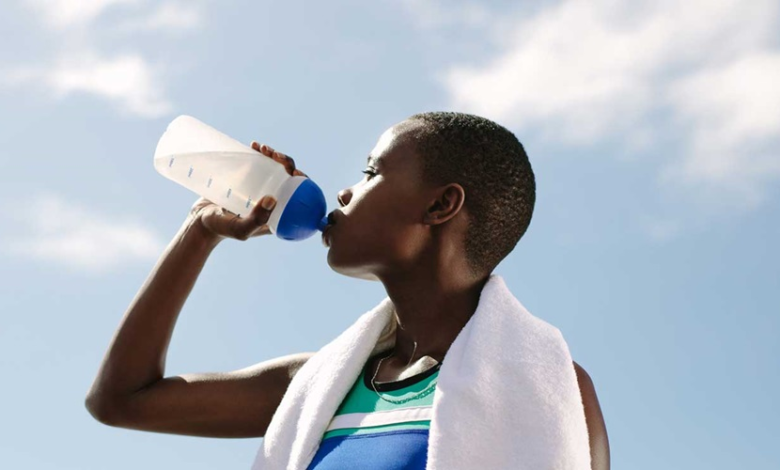Hydration Tips for Better Health

Hydration Tips for Better Health. Staying hydrated is essential for maintaining overall health and well-being. Proper hydration supports physical performance, mental clarity, skin health, digestion, and detoxification. Understanding the benefits and adopting good hydration habits can make a significant difference in your daily life.
Benefits of Staying Hydrated
Improved Physical Performance
Proper hydration is crucial for enhancing energy levels and improving endurance and strength. When you’re well-hydrated, your body functions more efficiently, reducing the risk of fatigue and muscle cramps during physical activities.
Mental Clarity and Mood
Staying hydrated can significantly impact your focus and concentration. Dehydration can lead to difficulties in thinking clearly and impair cognitive functions. Additionally, proper hydration helps maintain a better mood and supports overall mental well-being.
Skin Health
Hydration plays a vital role in moisturizing and maintaining glowing skin. Drinking enough water helps keep your skin supple and reduces the risk of skin disorders, such as dryness and irritation.
Digestive Health
Water is essential for improving digestion and preventing constipation. It helps break down food, allowing your body to absorb nutrients more effectively.
Detoxification
Hydration aids in the efficient removal of toxins from your body. It supports kidney function, ensuring that waste products are filtered out and excreted properly.
Daily Water Intake Recommendations
General Guidelines
While the commonly recommended amount is eight 8-ounce glasses (about 2 liters) per day, individual needs can vary based on factors like age, gender, activity level, and climate.
Adjusting for Individual Needs
Pay attention to your body’s signals and adjust your water intake accordingly. For instance, athletes or individuals in hot climates may require more fluids.
Recognizing Signs of Dehydration
Common signs of dehydration include dry mouth, fatigue, dizziness, dark-colored urine, and decreased urine output. Staying aware of these signs can help you take timely action.
Tips for Staying Hydrated
Carry a Water Bottle
Having a water bottle with you at all times makes it easier to take regular sips throughout the day. This simple habit encourages consistent hydration.
Set Reminders
Use apps or set alarms to remind you to drink water. Creating a hydration schedule can help ensure you meet your daily intake goals.
Infuse Your Water
Adding fruits and herbs to your water can make it more enjoyable. Try combinations like lemon and mint or cucumber and berries for a refreshing twist.
Eat Water-Rich Foods
Incorporate fruits and vegetables with high water content into your diet. Foods like watermelon, cucumbers, oranges, and strawberries contribute to your hydration needs.
Monitor Your Intake
Keeping a water journal or using apps to track your fluid intake can help you stay on track. This method provides a visual reminder of your progress.
Listen to Your Body
Pay attention to your thirst signals and drink water when you feel thirsty. Recognizing subtle signs of dehydration can help you stay ahead of your hydration needs.
Hydration for Active Lifestyles
Before, During, and After Exercise
It’s essential to hydrate before, during, and after exercise. Drink water before starting your workout, take sips throughout your session, and replenish fluids afterward to recover properly.
Electrolyte Balance
Maintaining electrolyte balance is crucial for proper hydration, especially during intense physical activity. Consider drinks that contain electrolytes, like sports drinks, for extended workouts.
Hydration Myths and Facts
Myth: You need to drink 8 glasses a day
Fact: Individual hydration needs vary based on factors like age, activity level, and climate. Listen to your body and drink accordingly.
Myth: Thirst is a reliable indicator
Fact: Thirst often signals that you’re already mildly dehydrated. It’s better to drink water regularly throughout the day to stay ahead of dehydration.
Myth: Caffeinated drinks dehydrate you
Fact: While caffeine has a mild diuretic effect, caffeinated drinks like coffee and tea can still contribute to your daily fluid intake.
Conclusion
Staying hydrated is vital for maintaining overall health and well-being. By understanding the benefits and adopting healthy hydration habits, you can improve your physical performance, mental clarity, skin health, digestion, and detoxification. Start incorporating these tips into your daily routine to enjoy the benefits of proper hydration. Hydration Tips for Better Health.
FAQs
- How much water should I drink daily?
- The amount varies for each individual. Listen to your body and aim for around 2 liters (eight 8-ounce glasses) as a general guideline.
- Can I drink too much water?
- Yes, overhydration can lead to a condition called hyponatremia, where the balance of electrolytes in your body is disrupted. Drink water in moderation.
- What are the best drinks for staying hydrated?
- Water is the best option. Other hydrating drinks include herbal teas, milk, and electrolyte-enhanced beverages.
- How can I make plain water more interesting?
- Infuse water with fruits, vegetables, and herbs to add flavor. Experiment with combinations like lemon and mint or cucumber and basil.
- Are there any signs that indicate I’m well-hydrated?
- Clear or light-colored urine, regular urination, and feeling alert and energetic are good indicators of proper hydration.



